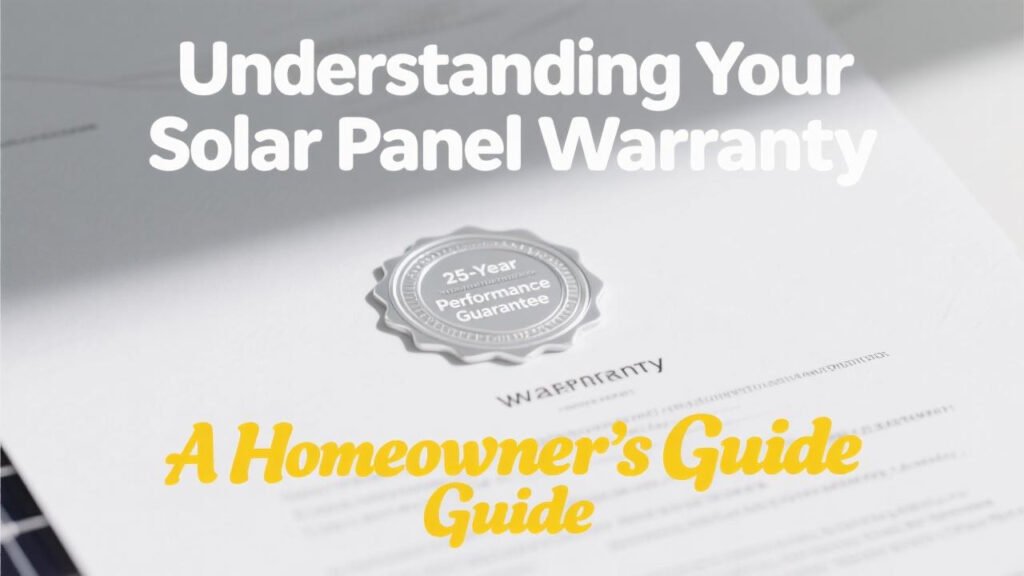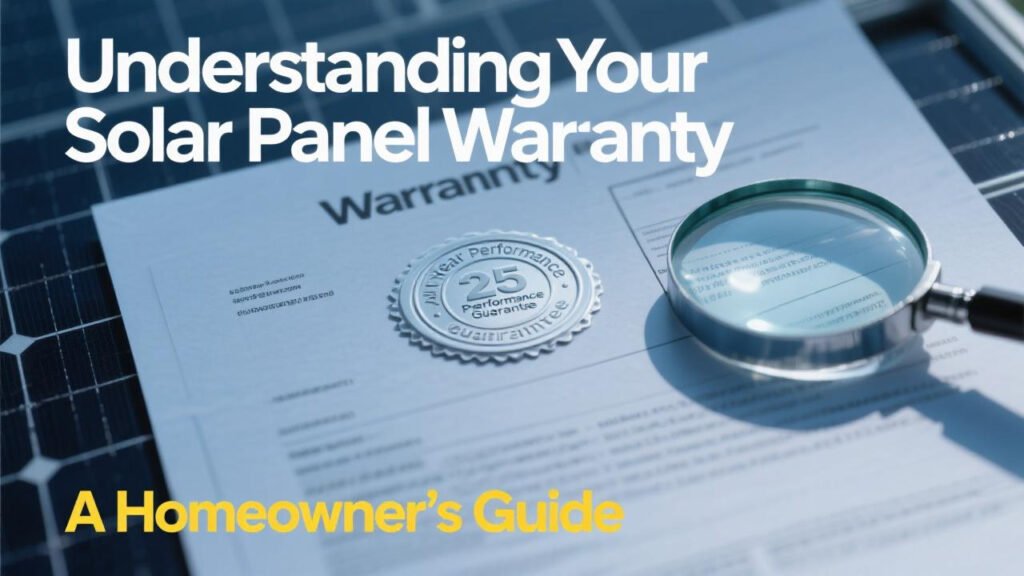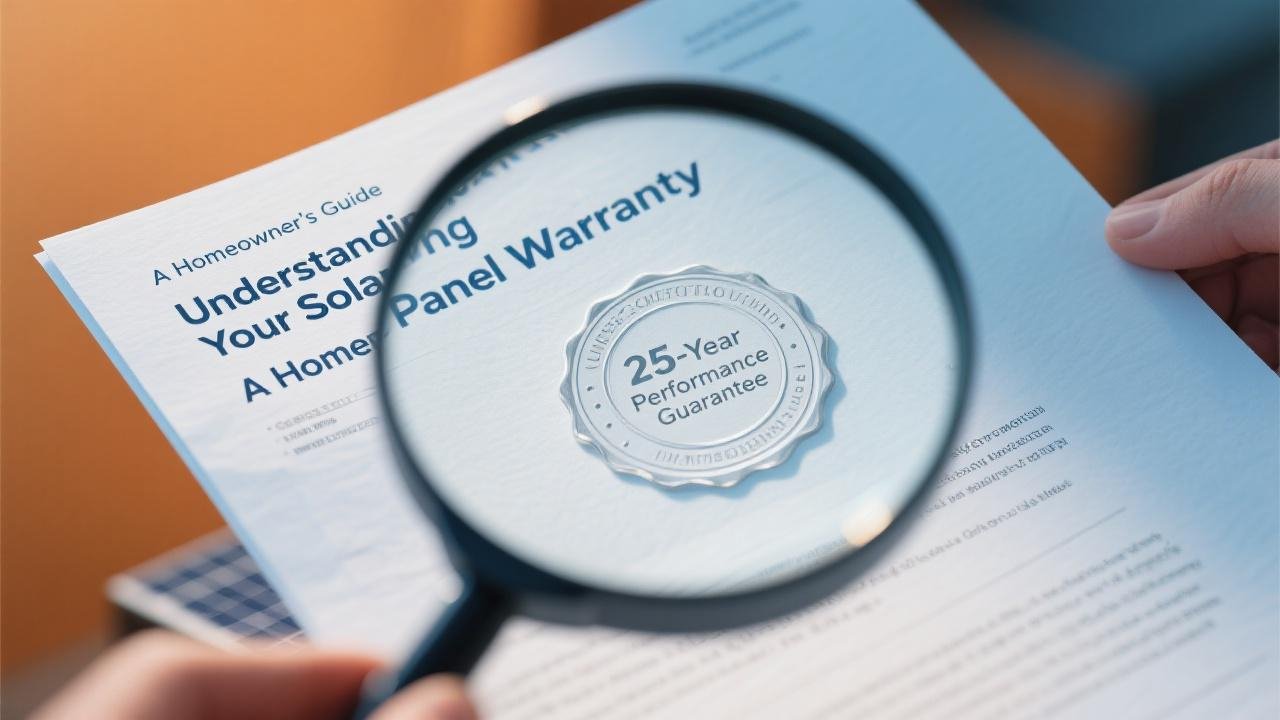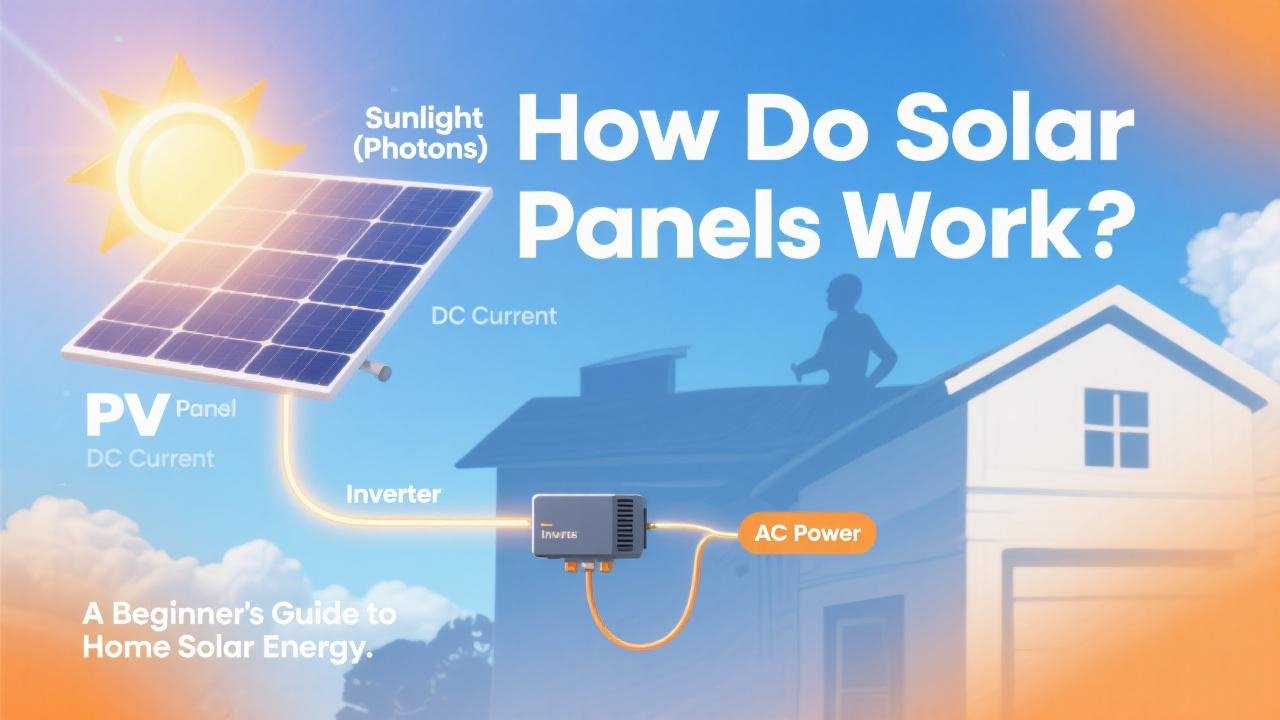Introduction: Protecting Your Solar Investment
Investing in a solar panel system for your home is a significant financial commitment, one that promises long-term energy savings and environmental benefits. Like any major purchase, you want assurance that your investment is protected. This is where solar panel warranties come into play. Understanding the different types of warranties associated with your solar system is crucial for peace of mind and for ensuring you get the most out of your solar journey. This guide will break down the common warranties you’ll encounter, what they cover, and what questions to ask your installer.
When comparing quotes from various installers, perhaps through a platform like EnergySage, pay close attention to the warranty details, as they can vary significantly between manufacturers and installation companies.
The Main Types of Solar Warranties:
A complete solar panel system typically comes with several distinct warranties:
- Solar Panel Product (or Materials) Warranty: Covers the physical integrity of the solar panels themselves.
- Solar Panel Performance Warranty: Guarantees a certain level of electricity production over time.
- Inverter Warranty: Covers the device that converts DC electricity from your panels to AC electricity for your home.
- Workmanship (or Installation) Warranty: Provided by your installer, covering issues related to the installation quality.
Let’s delve into each of these.

1. Solar Panel Product (or Materials) Warranty
- What it Covers: This warranty protects against defects in the materials and manufacturing of the solar panels. This could include issues like frame defects, premature wear and tear of components (excluding normal degradation), or problems with the junction box.
- Typical Length: Most reputable solar panel manufacturers offer a product warranty of 10 to 25 years. Some premium brands, like Maxeon, may offer even longer product warranties, sometimes up to 40 years.
- What to Look For:
- Length of Coverage: Longer is generally better.
- Transferability: Can the warranty be transferred to a new homeowner if you sell your house?
- Exclusions: Understand what isn’t covered (e.g., damage from extreme weather events not classified as defects, unauthorized modifications, or improper maintenance if specified).
2. Solar Panel Performance Warranty (Power Output Warranty)
- What it Covers: This is arguably one of the most critical warranties. It guarantees that your solar panels will maintain a certain percentage of their original power output capacity over a specified period. Solar panels naturally degrade slightly over time, meaning their electricity production slowly decreases. The performance warranty ensures this degradation doesn’t exceed a guaranteed rate.
- Typical Length and Terms: Most performance warranties last for 25 to 30 years. They usually guarantee two things:
- A maximum degradation rate per year (e.g., no more than 0.5% to 0.7% degradation per year after the first year).
- A minimum power output at the end of the warranty period (e.g., at least 80% to 90% of the original rated output by year 25 or 30). For example, Qcells offers a 25-year production guarantee of 90.58% for some models.
- What to Look For:
- Degradation Rate: A lower annual degradation rate is better.
- Guaranteed Output at End of Term: A higher percentage is better.
- Linear vs. Tiered Warranty: A linear warranty provides a straightforward annual degradation guarantee. A tiered warranty might guarantee certain output levels at specific intervals (e.g., 90% at 10 years, 80% at 25 years). Linear warranties are generally considered more transparent and favorable.
3. Inverter Warranty
- What it Covers: The inverter is a critical component that converts the DC electricity from your panels into usable AC electricity for your home. The inverter warranty covers defects in its materials and workmanship.
- Typical Length: Standard string inverter warranties are often 5 to 12 years. However, many manufacturers offer options to extend this to 20 or even 25 years for an additional cost. Microinverters and power optimizers (which are attached to individual panels) often come with longer standard warranties, typically 20 to 25 years, aligning more closely with panel warranties. For example, Enphase IQ Battery 5P, which includes microinverters, has a 15-year warranty.
- What to Look For:
- Length of Coverage: Especially for string inverters, consider the cost and benefit of an extended warranty.
- Coverage Details: Does it cover shipping and labor for replacements, or just the unit itself?
4. Workmanship (or Installation) Warranty
- What it Covers: This warranty is provided by your solar installation company and covers issues arising from the installation process itself. This can include problems like roof leaks due to improper mounting, loose wiring, or issues with the racking system.
- Typical Length: Workmanship warranties can vary widely, typically ranging from 1 to 10 years. Some highly reputable installers may offer 20 or 25-year workmanship warranties.
- What to Look For:
- Length of Coverage: A longer workmanship warranty indicates the installer’s confidence in their installation quality.
- Scope of Coverage: What specific installation-related problems are covered? Does it explicitly cover roof penetrations?
- Installer Reputation and Longevity: A warranty is only as good as the company backing it. Choose an installer with a strong track record and a high likelihood of being in business for the duration of the warranty. Using a platform like EnergySage can help you find installers with strong reputations and customer reviews.

Important Considerations for All Solar Warranties:
- Read the Fine Print: Always thoroughly read all warranty documents before signing a contract. Understand the terms, conditions, limitations, and exclusions.
- Claim Process: How do you make a warranty claim? What documentation is required? Who is responsible for diagnosing the issue and covering labor costs for replacements?
- Transferability: If you sell your home, can the warranties be transferred to the new owner? This can be a significant selling point.
- Manufacturer Stability: For product and performance warranties, the financial stability and reputation of the manufacturer are important. You want to ensure they will be around to honor their commitments.
- Proper Installation and Maintenance: Improper installation or failure to perform any specified (though usually minimal) maintenance could potentially void your warranties. Always use a qualified and certified installer.
How EnergySage Helps You Understand Warranties
Navigating the complexities of solar warranties can be challenging. When you get quotes through the EnergySage Marketplace, you can:
- Compare Warranty Information: Installer quotes on EnergySage typically include details about the warranties for the proposed equipment and the installer’s workmanship, making it easier to compare.
- Access Unbiased Advice: EnergySage’s Energy Advisors can help you understand the different warranty terms and what they mean for your investment, answering your questions without sales pressure.
- Connect with Vetted Installers: EnergySage pre-screens installers, increasing your chances of working with reputable companies that offer solid warranties and stand behind their work.
Securing Your Solar Future
Solar panel warranties are a vital part of your solar investment, providing protection and peace of mind. By understanding the differences between product, performance, inverter, and workmanship warranties, and by carefully reviewing the terms offered by manufacturers and installers, you can make a more informed decision. Don’t hesitate to ask detailed questions about warranty coverage.
Choosing high-quality equipment from reputable manufacturers and selecting a skilled, experienced installer are key to ensuring your solar system performs well for decades. Resources like EnergySage can be invaluable in helping you compare not just costs and equipment, but also the crucial warranty protections that safeguard your solar future.



